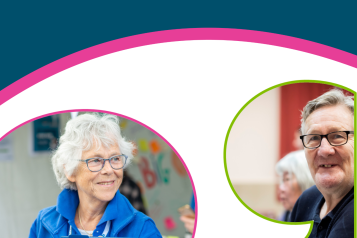Where to go for support when you have an eating disorder

According to the eating disorder charity BEAT, there are an estimated 1.25 million people in the UK with an eating disorder.
The last figures released by NHS England show that 1,529 children and young people across Yorkshire & the Humber were treated for suspected eating disorders over 12 months, a rise from 859 in the same period the year before and 825 the year before that. Overall, the number has soared by 85 per cent in two years.
Eating disorders vary a lot from person to person. Someone with an eating disorder might limiting how much they eat, eat lots of food at once, get rid of food they've eaten through making themself sick, fasting, or doing lots of exercise, or some combination of the above.
Because eating disorders can look so different from person to person, and because there are a lot of stereotypes about them, they can "hide in plain sight".
Do I have an eating disorder?
Some of the common behaviours and feelings that could mean you or someone you know has an eating disorder include:
- Being very focused on food, e.g. thinking about food a lot, or setting rigid rules about what you're "allowed" to eat
- Being very preoccupied with your weight and shape
- Avoiding eating around other people
- Low confidence and self-esteem
- Social withdrawal
- Mood swings and irritability
- Feelings of guilt, shame and anxiety, which might be related to food or not
If you’re worried about yourself or someone else, seek help as quickly as possible, as this gives the greatest chance of a full recovery.
"It was a struggle and it is a constant struggle; you do not know who to turn to get help for your child and there are not enough people who know enough about eating disorders."
Where to go for support
- Talk to your GP
If you think that you have an eating disorder, you should contact your local GP. They will ask you about your eating habits and lifestyle. If they think you might have an eating disorder, they will refer you to a specialist. - Talk to a friend or family member
It can be very hard to admit you have a problem and ask for help. Start by talking to a friend or family member. You could even bring them with you to your appointment to make you feel more comfortable. -
Talk to someone in your area
REDCAN is an alliance of regionally based eating disorder charities across the UK. Each charity provides different services in their area. From 1-2-1 therapeutic interventions and group sessions to education, training and workshops for friends and family, People looking for help more locally can self-refer to a REDCAN charity and get help on their doorstep in a format that works for them.
- Talk to an advisor
BEAT, the UK's eating disorder charity, has advisors who can talk to you about the different types of eating disorders and give information about recovery and the support available to you. They also have advice and resources on telling someone you have an eating disorder, getting a referral, what to expect from treatment, and more. Take a look at the BEAT website or contact them using the details below:
Helpline: 0808 801 0677
What should services do to help?
- Provide quicker access to support. Beat has warned that during the pandemic NHS waiting lists to see a specialist have grown alarmingly.
- Raise awareness of eating disorders and make information about local treatment and support easy to access.
- Offer more information about support groups to help people support a family member or struggling with an eating disorder.
Advice and information
Do you or a family member need advice and information about eating disorder services? Contact Healthwatch North Yorkshire.


